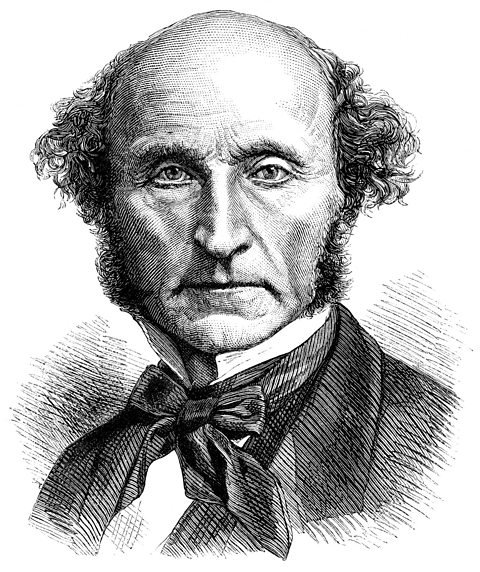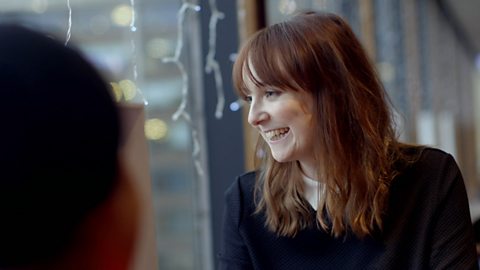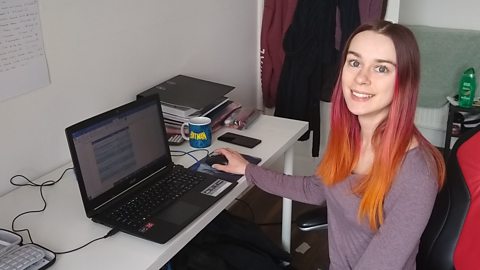People are finding all kinds of ways to cope with these difficult times: learning a new language, attending virtual video parties, and making bread to name just a few.

One thing you may not have thought of as a source of comfort though, is philosophy. ItŌĆÖs the study of, well, pretty much everything: the mind, morality, knowledge, reality, and existence. One of the many questions it tries to answer is: ŌĆśwhy are we here?'
And that might be a similar question you find yourself asking when youŌĆÖve spent the last five weeks walking exclusively from your bedroom to your kitchen, and back again. If that kind of rut sounds all too familiar, then have a look at what these philosophy professors said were their favourite theories and quotes to get them through hard times.
Ben Colburn - Head of Philosophy at the University of Glasgow
We can protect individuality under lockdown by recognising our power to pursue different goals

The early utilitarian [[someone who believes something is good if it benefits a majority of people]] John Stuart Mill wrote about the value of ŌĆśindividualityŌĆÖ, or ŌĆśautonomyŌĆÖ as modern philosophers call it. This means deciding for yourself what makes your life valuable, and actively living your life accordingly. ThatŌĆÖs hard, right now!
But one implication of MillŌĆÖs idea (echoed by later philosophers like the existentialist Simone de Beauvoir) is that we can adapt those decisions as we learn more about ourselves and our circumstances.
Maybe we can protect individuality under lockdown by recognising our power to pursue different goals, and shape ourselves in other ways, while our more familiar lives are on hold.

Paddy McQueen - Senior lecturer in Philosophy at the University of Swansea
All things will pass!
In terms of 'copingŌĆÖ, I have always been very interested in Buddhist philosophy. A core part of Buddhist teaching is that everything is impermanent: all things will pass. It might sound trite, but reflecting on this helps me to deal with difficult situations and emotions, as they will eventually pass (as all things do).
Also, staying on the theme of Buddhism, one thing I like about it is its teaching of universal compassion. In essence, we should care for all sentient beings by seeking to eliminate their sufferings. This is the principle of loving-kindness. One of the really inspiring things at the moment is the compassion that people, especially those working on the front line, are showing for others. It is humbling and inspiring.
This is from ShantidevaŌĆÖs [[a Buddhist monk]] Bodhicharyavatara (The Way of the Boddhisattva, written around 700AD):
ŌĆśWhatever joy there is in the world, all comes from desiring others to be happyŌĆÖ
Buddhism also teaches that much of what many people care about ŌĆō wealth, fame, etc. ŌĆō is, ultimately, unimportant. What does matter is cultivating loving-kindness for one another. The Covid-19 situation may help to refocus our attention on what is really important and, hence, how we might change society for the better. It also helps us to attend more to what we have, rather than always thinking about what we want or do not have, which is another lesson I draw from Buddhism.

So, I try to appreciate the small, daily pleasures that I often take for granted: eating a nice meal (indeed, having food to eat), walking in the park, enjoying the blossom and spring flowers, speaking with a friend. It is easy to ignore these things in our everyday lives, but I think that they are what give life meaning and make it worth living.

Joel Smith - Philosophy lecturer at the University of Manchester
Anxiety can force us to take charge of our lives
During the Coronavirus pandemic, and the current lockdown, lots of people are feeling anxious. We all know that anxiety is an unpleasant feeling. But what more can we say about it, and what does it reveal about ourselves and our relation to the world? In the 1920s [[German philosopher]] Martin Heidegger offered an answer to these questions.
First of all, anxiety is not the same as fear. When we are afraid, there is always something that we are afraid of. We might fear falling off a cliff, or failing our exams. But anxiety seems to lack such a focus. When we are anxious, we are overcome by a feeling that does not seem to be directed to a particular object or event. As Heidegger (in his History of the Concept of Time) puts it:
ŌĆ£What threatens is nothing definite and worldy, and yet it is not without the impending approach which characterises the threatening. Indeed, what threatens in this indefinite way is now quite near and can be so close that it is oppressiveŌĆØ
Anxiety can also make things feel unfamiliar:
ŌĆ£Anxiety can ŌĆśbefallŌĆÖ us right in the midst of the most familiar environment. Oftentimes it does not even have to involve the phenomenon of darkness or of being alone which frequently accompanies anxiety. We then say: one feels uncanny. One no longer feels at home in his most familiar environment.ŌĆØ
So what does this mean? According to Heidegger, anxiety tells us something important about our relations to our social environment. It reveals to us that the familiar, everyday things and activities that we take for granted, (brushing our teeth, eating with cutlery, going to uni after finishing school) are things that we unthinkingly take on from others. They are things that we simply drift into, often before we are old enough to think about them in a critical way.
Anxiety, according to Heidegger, reveals all of this to us and forces us to confront it. Do we agree with these activities and social norms? Do they stand up to critical scrutiny? Of course, some are trivial (eating with cutlery) but others are less so (like going to university or not). Anxiety, that feeling that one is not at home in an uncanny world, can force us to ask these questions and take charge of our lives rather than just ŌĆśgoing with the flowŌĆÖ of our social environment.
Is lockdown is getting you down? Are you feeling anxious, scared or need help with planning what to do next? Check out our Support section for tips and resources.
For advice on how to cope with life changes at this time, visit .
Admitting that youŌĆÖre not ok: Why itŌĆÖs good to talk about anxiety
Nadiya chats to Claire about her experiences of living with anxiety.

Setting realistic goals. video
How to achieve while still stretching yourself.

Coronavirus: How I'm coping being away from loved ones
Tips on how to deal with being away from friends and family.
